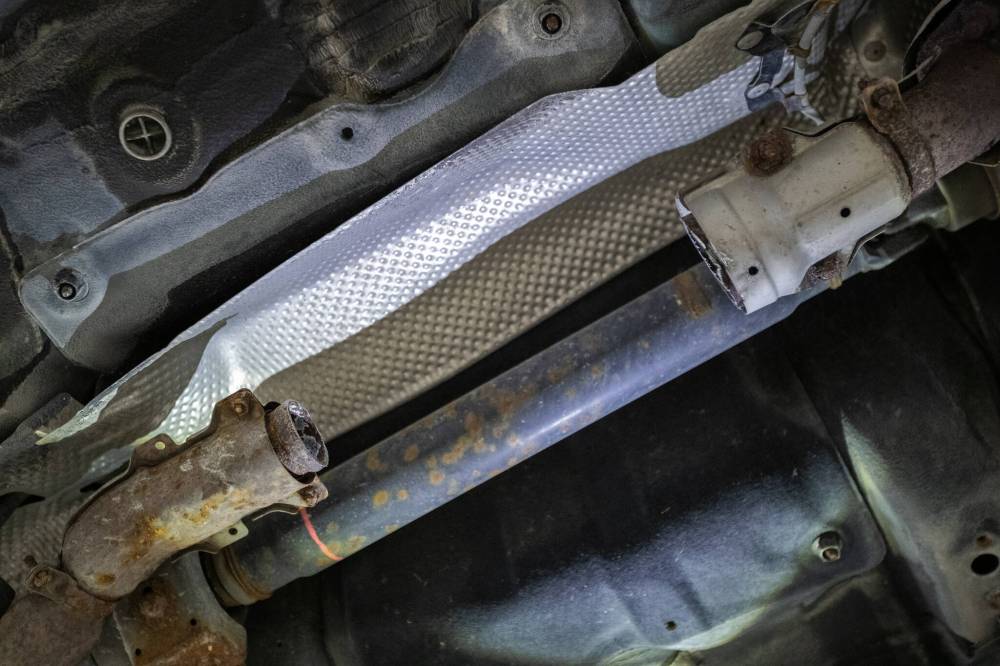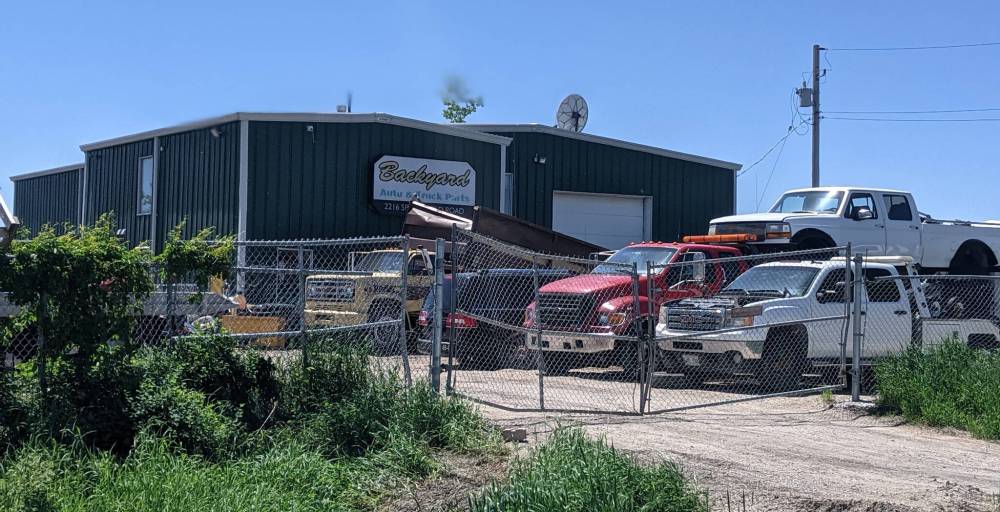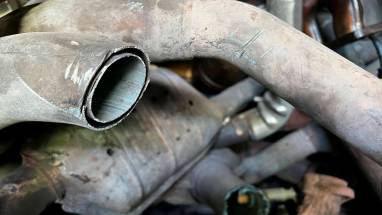Spotlight on catalytic converters seeks to erase black market
Read this article for free:
or
Already have an account? Log in here »
To continue reading, please subscribe:
Monthly Digital Subscription
$19 $0 for the first 4 weeks*
- Enjoy unlimited reading on winnipegfreepress.com
- Read the E-Edition, our digital replica newspaper
- Access News Break, our award-winning app
- Play interactive puzzles
*No charge for four weeks then billed as $19 plus GST every four weeks. Offer only available to new and qualified returning subscribers. Cancel any time.
Read unlimited articles for free today:
or
Already have an account? Log in here »
Hey there, time traveller!
This article was published 17/07/2022 (892 days ago), so information in it may no longer be current.
It is well-known whatever government does — even the obvious, much-needed and totally justified things — someone will be unhappy about it. We need look no further for proof than Manitoba’s recent efforts to combat the black market for catalytic converters.
On Monday, Justice Minister Kelvin Goertzen confirmed new regulations to force dealers in auto parts, scrap metal and metal recycling to collect more information from anyone selling a catalytic converter.
Now, anyone purchasing a catalytic converter will have to photograph the seller, the vehicle they are using, their photo identification and details of how they came to own the exhaust emission control device.
The theory is asking for sellers to fully identify themselves or prove ownership will make it harder for thieves to sell stolen converters, thus curbing such criminal efforts.
Scrap-metal recyclers dubious about province’s anti-theft legislation

Posted:
Manitoba scrap-metal recyclers will be forced to collect a tonne of new information from customers as legislation intended to curb rampant metal and catalytic converter theft comes into force.
That’s not how a couple of local businesses quoted in a Free Press story see things. A scrap dealer and a recycling operation both complained about the additional paperwork required to meet the terms of the new regulations.
They said it wasn’t likely any of these new rules were going to cut down on catalytic converter thefts. “It’s a knee-jerk reaction to the situation,” said one.
But is it really?
Manitoba is only following the lead of jurisdictions around North America. The province is also well within the best practices recommended by insurance companies that, after all, end up paying out on claims when the devices are hacked off the undercarriage of insured vehicles.
As is the case with most property crimes, the epidemic of catalytic converter thefts is prompted by trends that extend well beyond provincial borders. Thieves all over the world have been targeting the emissions-scrubbing part for years, driven by a number of factors.
First, as more jurisdictions invoke restrictions on automotive emissions, more cars are required to have a catalytic converter. Some, in fact, have more than one. So, until electrified vehicles become the norm, there are more catalytic converters available for people to steal.
Second, these devices contain small amounts of rhodium and palladium, precious metals that are also key elements in the manufacture of new-generation batteries for the aforementioned EVs.
Given the process needed to extract the precious metals, there is little doubt some of Manitoba’s metal recycling companies are involved in buying black market catalytic converters.
Palladium is currently selling at about $2,500 per ounce, up from $700 five years ago; rhodium is selling at $15,000/oz, up from $640 five years go.
These prices make the recycling of catalytic converters and the reclamation of precious metals within a lucrative business. That makes the theft of these devices a lucrative business.
The number of catalytic converter thefts recorded by Manitoba Public Insurance in 2021 was 1,564, up from 336 the year before. So far this year, more than 1,200 thefts have been logged — a pace which speaks to yet another dubious record of achievement by thieves.
However, in order for the thieves to get paid (city police believe up to $300 per device) they have to find a willing partner in the automotive and metal recycling industry. That’s where these regulations are pointed.
Given the process needed to extract the precious metals, there is little doubt some of Manitoba’s metal recycling companies are involved in buying black market catalytic converters.
Three charged with trafficking catalytic converters after police raid scrapyard

Posted:
Three men are facing charges after police targeted a scrapyard in a four-month investigation — dubbed Project Precious — into sales of stolen catalytic converters, as thefts skyrocket in Manitoba.
Last month, Winnipeg police raided an auto parts business in the Rural Municipality of Springfield and charged three men with possession of property obtained by crime (catalytic converters). It was not clear, however, whether this business was also recycling the devices or selling them to a third party. No other charges have yet been laid.
Auto parts and metal yards and recyclers that generally uphold the law and resist the temptation to buy stolen devices may feel inconvenienced by the additional paperwork required under the new Manitoba regulations, but they are hardly a “knee-jerk” response by government.
A black market for these devices can only exist if someone knowledgeable in metal recycling is willing to buy them.
George Shea, owner of Direct Auto Parts in St. François Xavier and spokesman for the Automotive Recyclers of Manitoba, said the additional documentation is not really that onerous when you consider the extent of the problem. Although there are entirely legitimate reasons why someone would want to sell a catalytic converter — ones harvested from legally purchased wrecks, for example — there is a lot of devices floating around, the source of which is impossible to identify.
Ultimately, the solution is for auto parts and recycling companies to just say no unless they are buying from reputable, established auto salvage businesses.
“I’ve got guys in here all the time trying to sell (catalytic converters),” said Shea. “We just tell them, ‘No, we don’t deal in catalytic converters’ from people we don’t know.”
dan.lett@freepress.mb.ca

Dan Lett
Columnist
Born and raised in and around Toronto, Dan Lett came to Winnipeg in 1986, less than a year out of journalism school with a lifelong dream to be a newspaper reporter.
Our newsroom depends on a growing audience of readers to power our journalism. If you are not a paid reader, please consider becoming a subscriber.
Our newsroom depends on its audience of readers to power our journalism. Thank you for your support.











